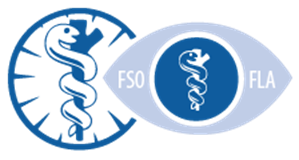
This month, the Florida Society of Ophthalmology (FSO) is sharing resources for parents and guardians to perform basic, at-home vision screenings for kids. Using guidelines from the American Academy of Ophthalmology (AAO), FSO wants parents to know that many vision issues in children are preventable and treatable if caught early.
“We understand that during a global pandemic like COVID-19, there have been some families who have not been able to even think about things like eye exams for themselves or their children,” said Darby D. Miller, MD, MPH, President of the Florida Society of Ophthalmology and Board of Trustee of the For Eye Care Foundation, Inc. “By sharing resources for basic, at-home testing, parents and guardians who are at home with their families and children this summer can use these guidelines to better prepare and educate themselves as they schedule their visits to a qualified ophthalmologist or pediatrician.”
Fewer than 20 percent of preschoolers are currently screened for vision problems despite serious, but treatable eye disorders found in young children. One such issue, Amblyopia (known as lazy eye), is the number one cause of preventable yet permanent vision loss in children in the U.S. Earlier this year, the Florida Senate officially designated August 2020 as “Amblyopia Awareness Month” to educate Florida parents on the importance of vision screening at an early age.
These same resources can also be used to test vision in adults and may be useful in deciding that a visit to the ophthalmologist is warranted. Resources on at-home screenings can be found at MDEye.org/HomeVision, where in-depth instructions and eye charts can be downloaded.
About the Florida Society of Ophthalmology
The Florida Society of Ophthalmology is the state’s leading advocate for providing Floridians the highest standard of eye care. The FSO’s mission is to promote and protect the medical specialty of ophthalmology through active participation in legislative advocacy and providing continuing medical education and responsible information to its members, physicians, and the citizens of Florida. Please visit www.mdeye.org for more information.
